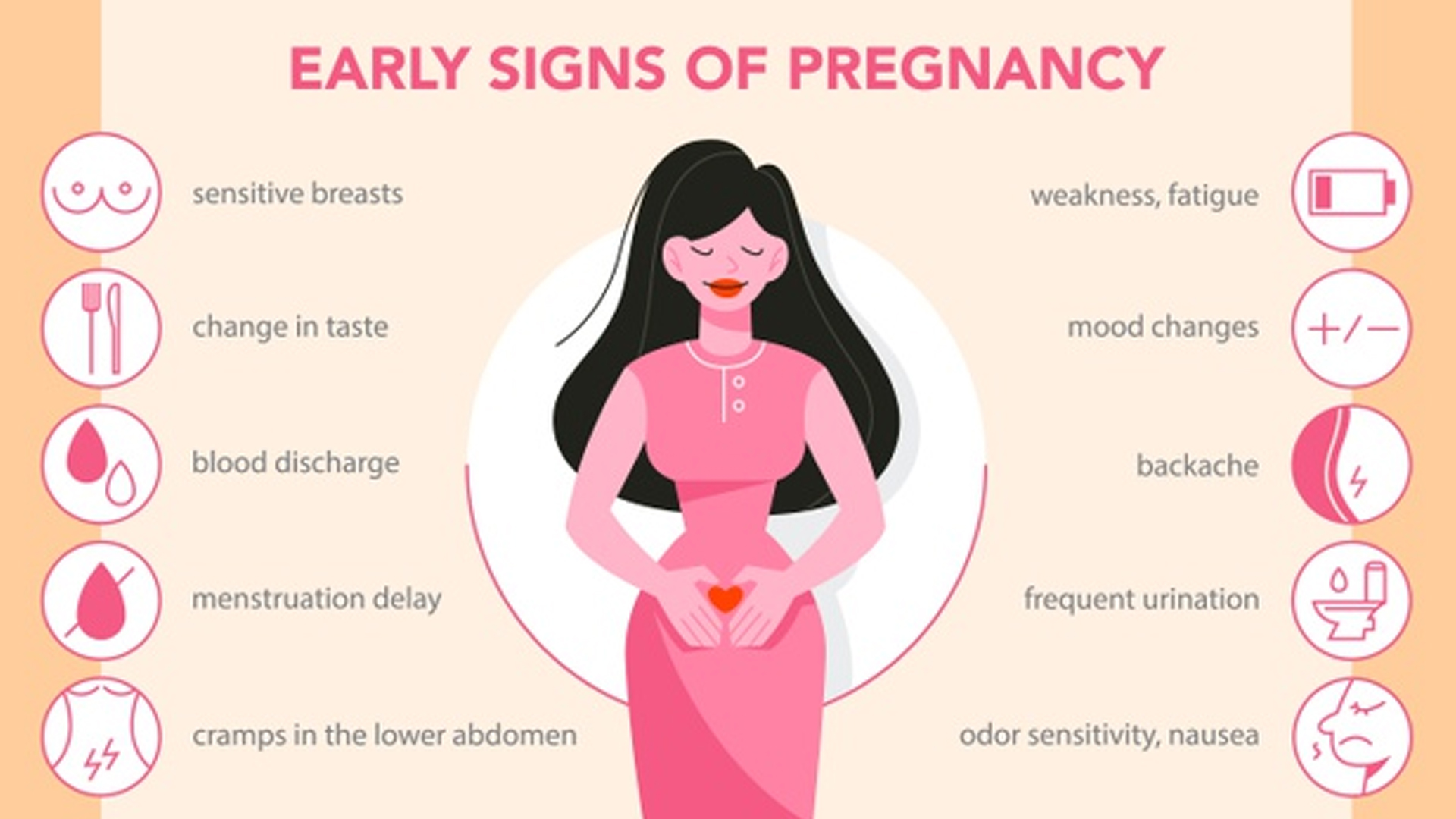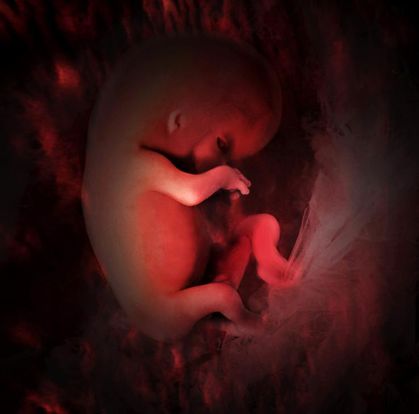

While the cause of nausea during pregnancy isn't clear, pregnancy hormones likely play a role. However, some women feel nausea earlier and some never experience it. Morning sickness, which can occur at any time of the day or night, often begins one to two months after you become pregnant. The discomfort will likely decrease after a few weeks as your body adjusts to hormonal changes. Early in pregnancy hormonal changes might make your breasts sensitive and sore. However, this symptom can be misleading if you have an irregular menstrual cycle. If you're in your childbearing years and a week or more has passed without the start of an expected menstrual cycle, you might be pregnant. (n.d.).The most common early signs and symptoms of pregnancy might include: Pregnancy: Sensitivity and specificity.Human chorionic gonadotropin hormone (HCG).You can learn more about how we ensure our content is accurate and current by reading our editorial policy. We link primary sources - including studies, scientific references, and statistics - within each article and also list them in the resources section at the bottom of our articles. Medical News Today has strict sourcing guidelines and draws only from peer-reviewed studies, academic research institutions, and medical journals and associations.

The blood test can show a positive result a few days earlier than the urine test can, but it may take up to 48 hrs to get the results back from the lab. This test identifies the presence of hCG in the blood. To avoid a false negative result, check the pregnancy test’s expiration date, and carefully follow the written directions.Ī person can also have a blood test to determine whether they are pregnant. If a person believes they are pregnant despite a negative test result, they should repeat the test after 1 week. If a woman takes the pregnancy test earlier than 1 week after a missed period, it may give a negative result, even if the person is actually pregnant. Results of a pregnancy test are either positive or negative. To help ensure an accurate result, the best time to take a pregnancy test is 1 week after a missed period. A home pregnancy test can tell whether you are pregnant in a few minutes, with most claiming to offer almost 99% accuracy. There are many affordable and reliable pregnancy tests available over-the-counter (OTC) or online. However, it typically takes about 3 weeks before there’s enough hCG in the urine to produce a positive pregnancy test. A pregnancy test may return a positive result as early as 10 days after a person has had sex without contraception.

Planned Parenthood indicate that it is best to take a pregnancy test as soon after a missed period as possible. As the egg grows into an embryo, the cells that surround it and later become the placenta produce hCG. This hormone is only present when a woman is pregnant.

Some women experience only a few minor cramps, while others may feel occasional discomfort that comes and goes over a few days.Ī pregnancy test measures the amount of Human Chorionic Gonadotropin (hCG) hormone in the urine. The cramping may feel like a pulling, tingling, or pricking sensation. Women may feel these cramps in the abdomen, pelvis, or low back area. Women may also feel mild cramping as the embryo attaches to the uterus wall. The spotting may last for a few hours, or it may last for a few days. Instead, it is light bleeding that may involve a single spot of blood or a small amount of pink discharge. Implantation bleeding is an early sign of pregnancy. This movement of the egg may break down blood vessels within the uterus wall, which may cause light bleeding and cramping. This is when the fertilized egg attaches to the lining of the uterus. This can happen about 14 days after the menstrual cycle starts, according to March of Dimes.Īccording to Planned Parenthood, implantation begins about 6–7 days after conception. Morel/Getty ImagesĬonception, or fertilization, occurs when the ovary releases an egg (ovulation), and a sperm fertilizes it.


 0 kommentar(er)
0 kommentar(er)
